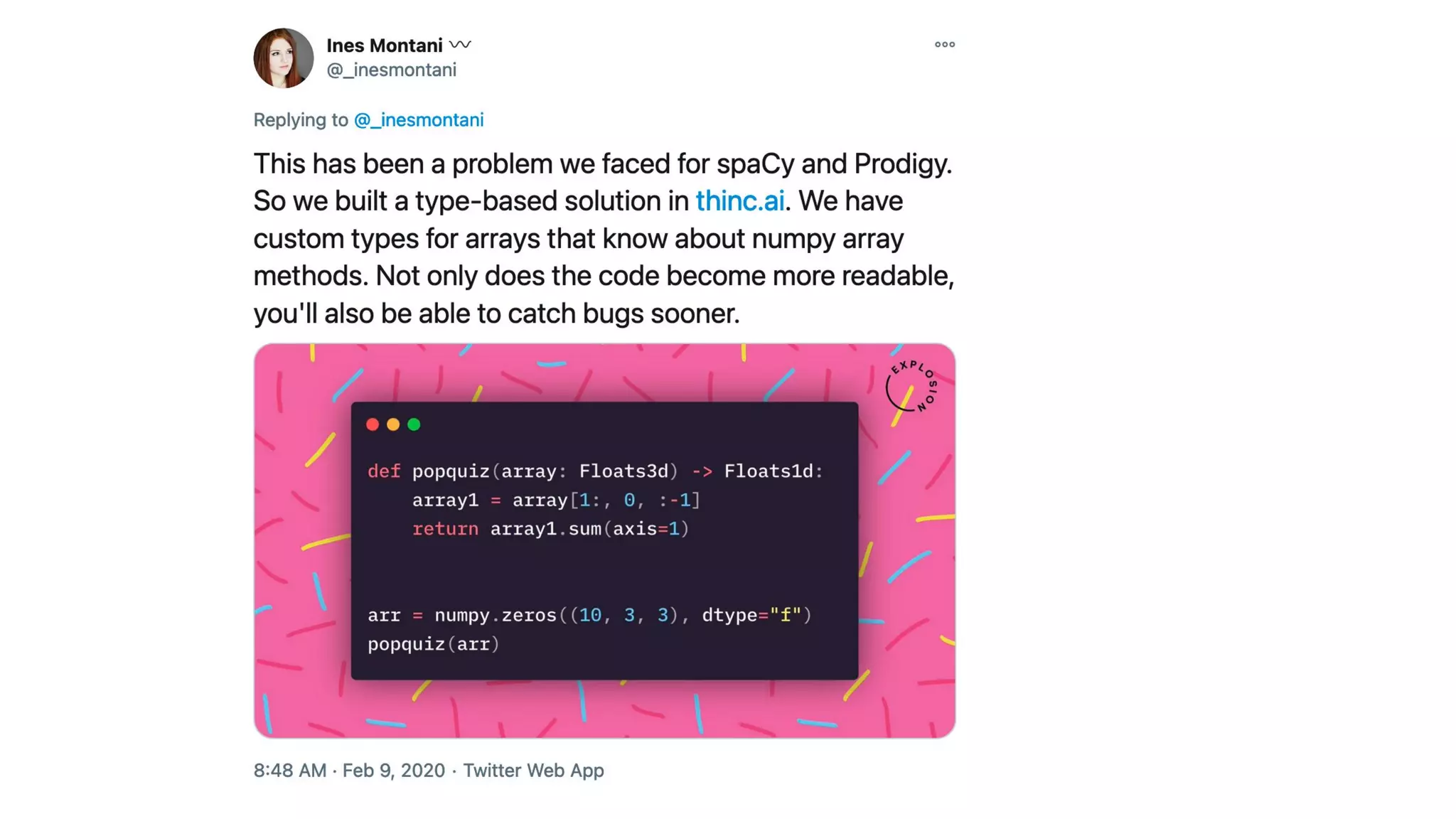This document provides an overview of using type annotations in Python to enable static type checking. It demonstrates how to annotate basic types like integers, strings, and lists. It also shows how to define type aliases, use optionals, create generic functions, use union types, and annotate callables. The goal is to add type safety to Python code and catch errors earlier using the static type checker Mypy.
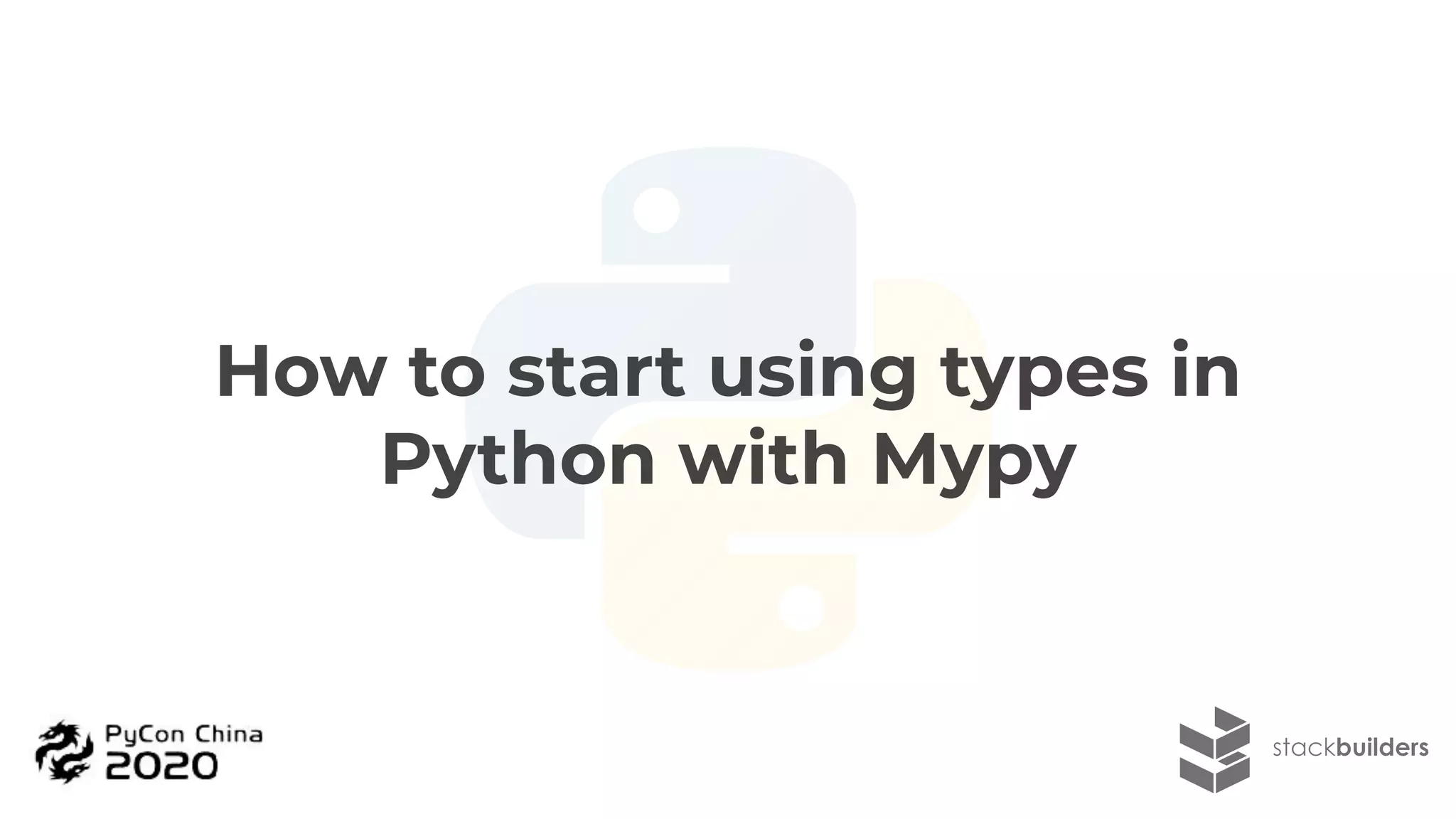

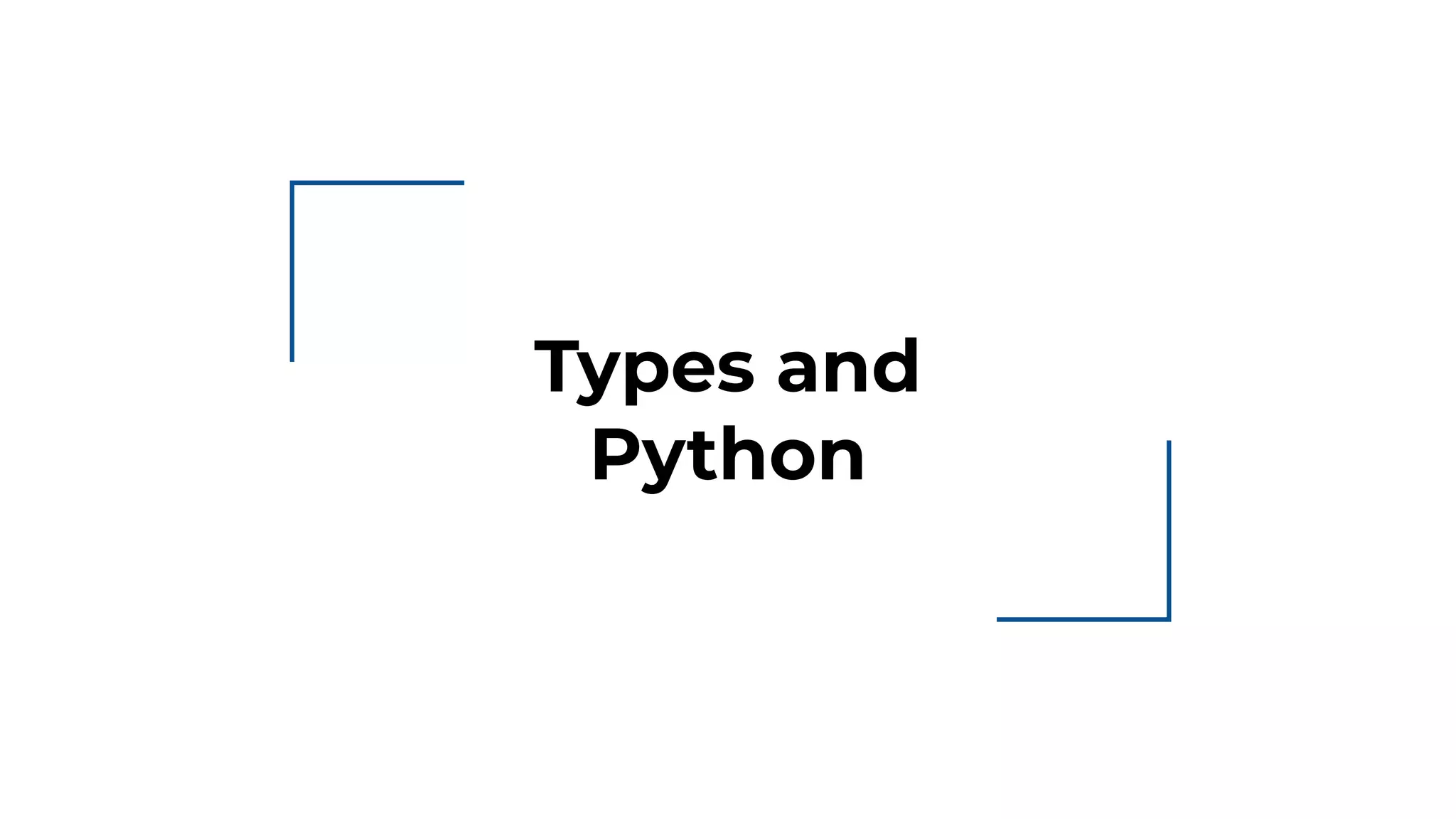
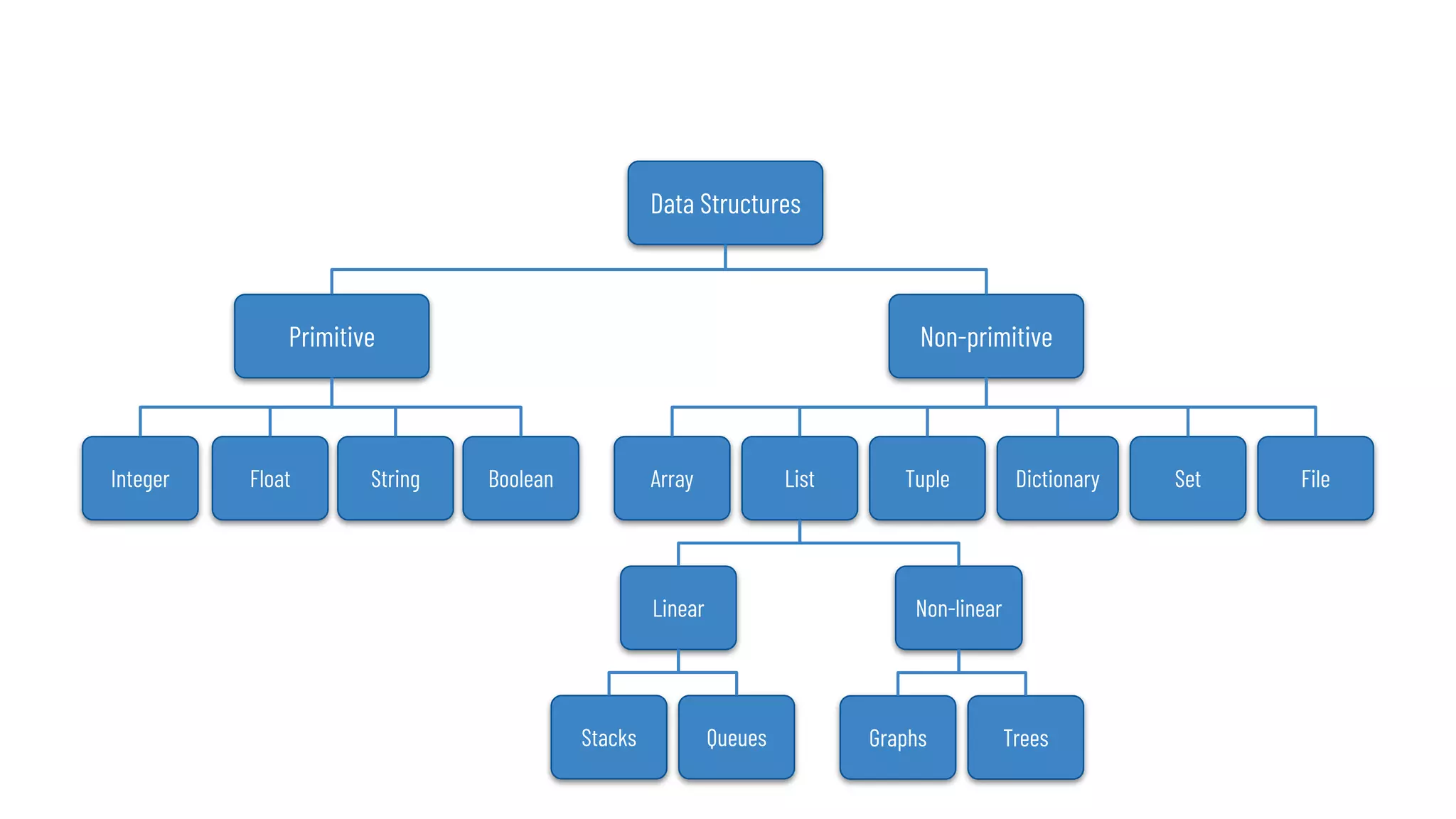


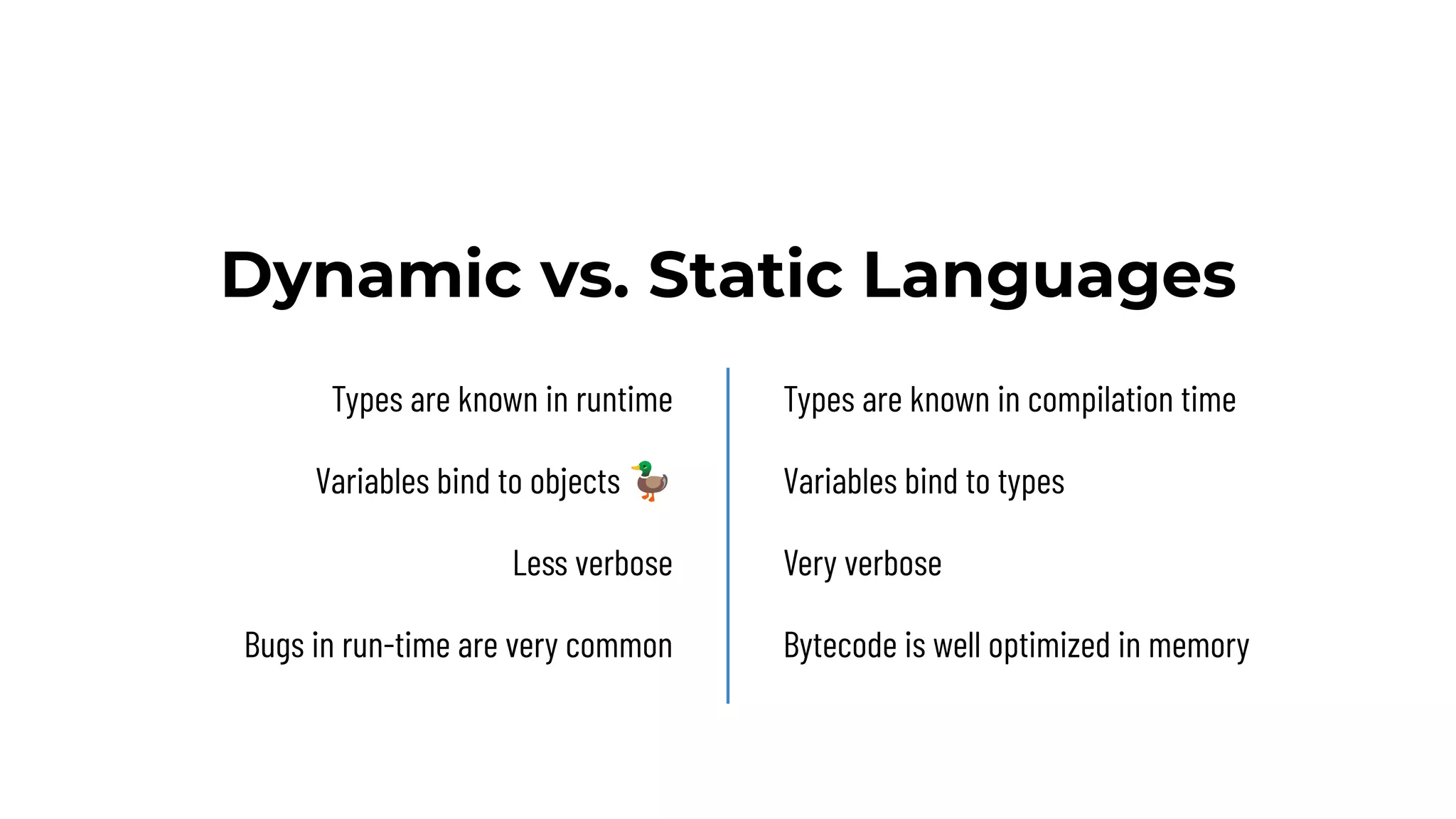
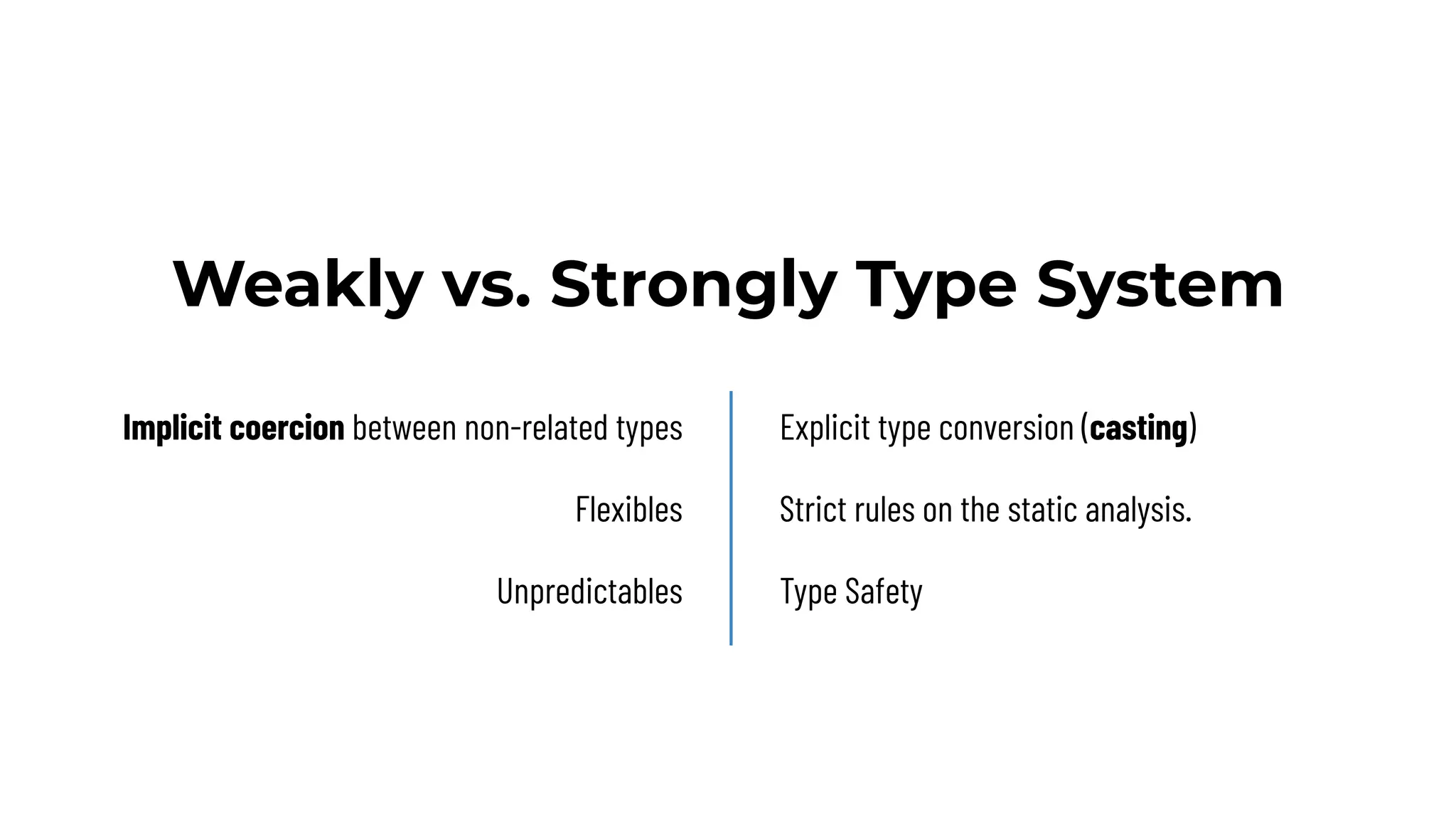
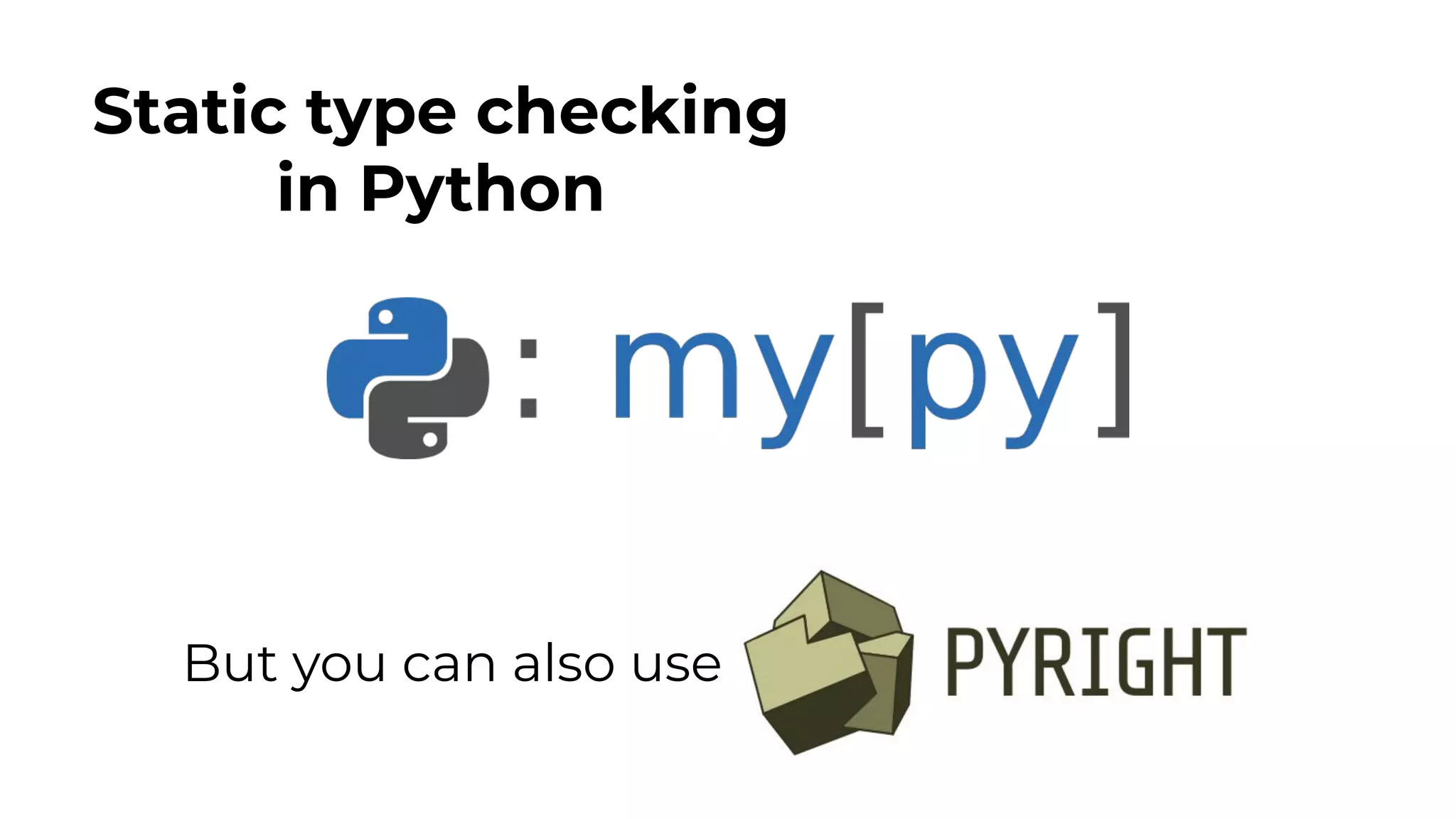

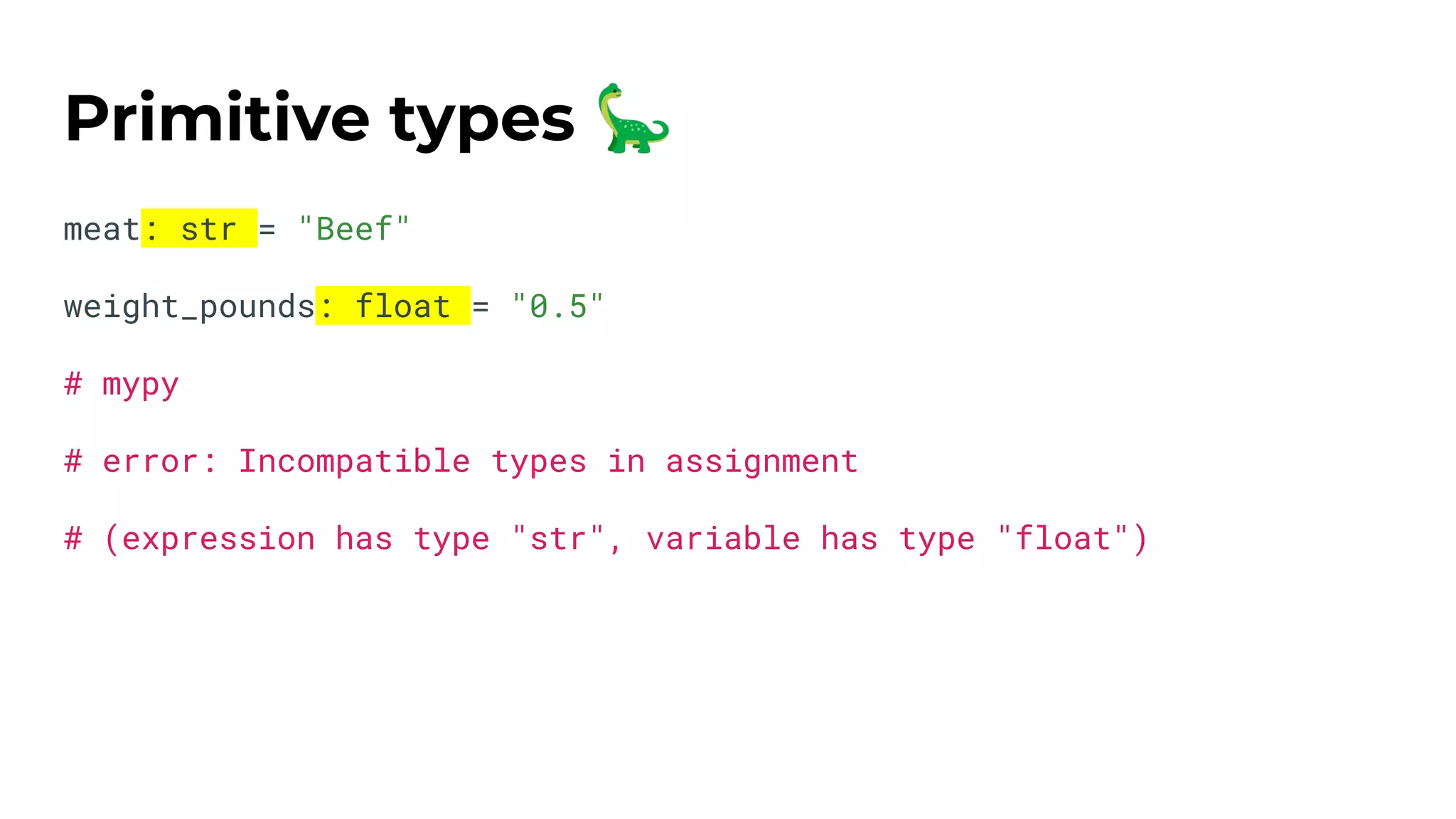
![Let’s prepare some 🍔 def make_hamburger(meat, number_of_meats): return ["bread"] + [meat] * number_of_meats + ["bread"] print(make_hamburger("BEEF", 2)) # ['bread', 'BEEF', 'BEEF', 'bread']](https://image.slidesharecdn.com/typeannotationsinpython-pyconchina2020-210620172507/75/How-to-start-using-types-in-Python-with-mypy-12-2048.jpg)
![class MyTest(unittest.TestCase): def test_make_hamburger_returns_list(self): self.assertTrue(isinstance(make_hamburger("beef", 2), list)) def test_empty_make_hamburger_returns_breads(self): self.assertEqual(make_hamburger(None, 0), ['bread', 'bread']) def test_invalid_make_hamburger_raises(self): with self.assertRaises(TypeError): make_hamburger() Unit testing?](https://image.slidesharecdn.com/typeannotationsinpython-pyconchina2020-210620172507/75/How-to-start-using-types-in-Python-with-mypy-13-2048.jpg)
![from typing import List def make_hamburger(meat: str, number_of_meats: int) -> List[str]: return ["bread"] + [meat] * number_of_meats + ["bread"] The `typing`module](https://image.slidesharecdn.com/typeannotationsinpython-pyconchina2020-210620172507/75/How-to-start-using-types-in-Python-with-mypy-14-2048.jpg)
![from typing import List Hamburger = List[str] def make_hamburger(meat: str, number_of_meats: int) -> Hamburger: return ["bread"] + [meat] * number_of_meats + ["bread"] Type Alias](https://image.slidesharecdn.com/typeannotationsinpython-pyconchina2020-210620172507/75/How-to-start-using-types-in-Python-with-mypy-15-2048.jpg)
![from typing import List, Optional Hamburger = List[str] Extras = Optional[List[str]] def make_hamburger(meat: str, number_of_meats: int, extras: Extras) -> Hamburger: if extras: return ["bread"] + extras + [meat] * number_of_meats + ["bread"] else: return ["bread"] + [meat] * number_of_meats + ["bread"] print(make_hamburger("Beef", 2, ['tomatoes', 'pickles'])) # ['bread', 'tomatoes', 'pickles', 'Beef', 'Beef', 'bread'] Optionals 🍅](https://image.slidesharecdn.com/typeannotationsinpython-pyconchina2020-210620172507/75/How-to-start-using-types-in-Python-with-mypy-16-2048.jpg)
![from typing import TypeVar, List T = TypeVar("T", int, List[str]) def generic_add(x: T, y: T) -> T: return x + y Generics ](https://image.slidesharecdn.com/typeannotationsinpython-pyconchina2020-210620172507/75/How-to-start-using-types-in-Python-with-mypy-17-2048.jpg)
![x1: int = 5 y1: int = 2 print(generic_add(x1, y1)) # 7 x2: List[str] = ["Hello"] y2: List[str] = ["World"] print(generic_add(x2, y2)) # ['Hello', 'World'] x3: str = "foo" y3: str = "bar" print(generic_add(x3, y3)) # mypy error: Value of type variable "T" of "generic_add" cannot be "str" Generics ](https://image.slidesharecdn.com/typeannotationsinpython-pyconchina2020-210620172507/75/How-to-start-using-types-in-Python-with-mypy-18-2048.jpg)
![from typing import Union Number = Union[float, int] def union_add(x: Number, y: Number) -> Number: return x + y Union Types](https://image.slidesharecdn.com/typeannotationsinpython-pyconchina2020-210620172507/75/How-to-start-using-types-in-Python-with-mypy-19-2048.jpg)
![x1: int = 5 y1: float = 2.5 print(union_add(x1, y1)) # 7 x2: int = 2 y2: str = "1" print(union_add(x2, y2)) # error: Argument 1 to "union_add" has incompatible type "str"; expected "Union[float, int]" # error: Argument 2 to "union_add" has incompatible type "str"; expected "Union[float, int]" Union Types](https://image.slidesharecdn.com/typeannotationsinpython-pyconchina2020-210620172507/75/How-to-start-using-types-in-Python-with-mypy-20-2048.jpg)
![from typing import Callable def sum_and_process(a: int, b: int, callback: Callable[[int], bool]) -> bool: total = a + b return callback(total) def is_positive(val: int) -> bool: return val > 0 output = sum_and_process(5, 2, is_positive) print(output) # True Callables](https://image.slidesharecdn.com/typeannotationsinpython-pyconchina2020-210620172507/75/How-to-start-using-types-in-Python-with-mypy-21-2048.jpg)
